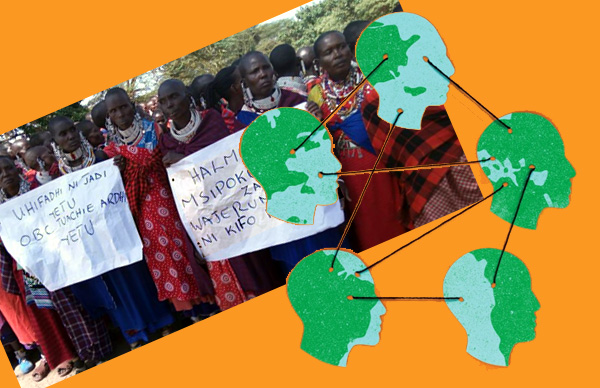 Now few believe in the power of language that I do, and Manvar Singh’s excellent time line of the word “indigenous” developing from the 16th Century into various versions including Maasai anagrams is almost fascinating. But what does it really have to do with the Maasai being kicked out of Loliondo?
Now few believe in the power of language that I do, and Manvar Singh’s excellent time line of the word “indigenous” developing from the 16th Century into various versions including Maasai anagrams is almost fascinating. But what does it really have to do with the Maasai being kicked out of Loliondo?
Singh’s New Yorker epistemology of “indigenous peoples” and the resulting evisceration of same peoples’ aspirations is terribly incomplete and as useless as he tries to portray those aspirations.
His scholarship is terrific: a history of mostly original peoples subjected by usurpers then confounded in attempts for liberation and justice because they adopted and even embraced the moniker of “indigenousness” as “worryingly, …primitiveness.”
The implication is that justice and liberation is due these peoples, but that they forfeited their opportunity for success when they called themselves, or alternatively didn’t dispute letting themselves be called, “indigenous.”
Really?
Modern East African governments, like their colonial predecessors, discount the Maasai from legitimate citizenship in the modern state with a variety of political maneuvers including many which pander to old feuds and tribalism. So what’s new about this? It’s what self-centered politicians the world over do: divide and conquer.
As Singh himself documents, when alliances between diverse groups are successful the divide-and-conquer aggression can be thwarted. But he just refuses to develop this, instead devolving back into what he thinks is (more importantly?) the bad use of the word, indigenous.
It’s almost as if Singh believes that linguistics trumps political science. He may not intend it, but doing so just doesn’t distract us from what ought to be done but stymies it, thus creating an analysis of a problem as problematic as the problem.
It’s circular, almost tautological, and infuriating.
Linguistics is no less valuable in life than political science or origami. But as with the current juvenile debate over woke culture it’s certainly no more beneficial to solving the world’s problems than the organic analysis of that problem. That’s how interest in linguistics becomes obsession and finally, distraction.
What I think Singh should have done is argued that colonialism and patrimony is entrenched in modern human history and that labeling the most vulnerable as inferior creates a carte blanche for the oppressor to prosper at their expense.
He should have pointed out that this term “indigenous” might be unique enough that it has added power by coopting the very peoples it describes into accepting its inferiority. That is interesting and sad and comports with the gentleness of original peoples. But much more importantly it provides the obvious way to get out of this mess.
Cast off all the labels, all the documents and regulations related to “indigenous” and all its anagrams and see the Maasai as no different from the Jews of Nazi Poland or the rubber worker slaves of King Leopold or the blacks of modern Birmingham, Alabama.
There are countless numbers of self-defined groups of people abused by unjust oppressors. Singh does a marvelous job arguing that “original” or “indigenous” is hardly accurate for all these people, so take the next step, man! What are they?
The oppressed of the earth.
And there really is an awful lot they can do to liberate themselves and an awful lot that we can do to help them. Start with scraping off the distractions of language to wrestle with the actual ideas. I think this is what Sighn might have meant but like so many thinkers today, he was either obsessed by or oppressed by language.
Time to stand up to those Word Policemen strutting our halls of discourse. Language does not have the power of an idea. Ideas are powered by language.